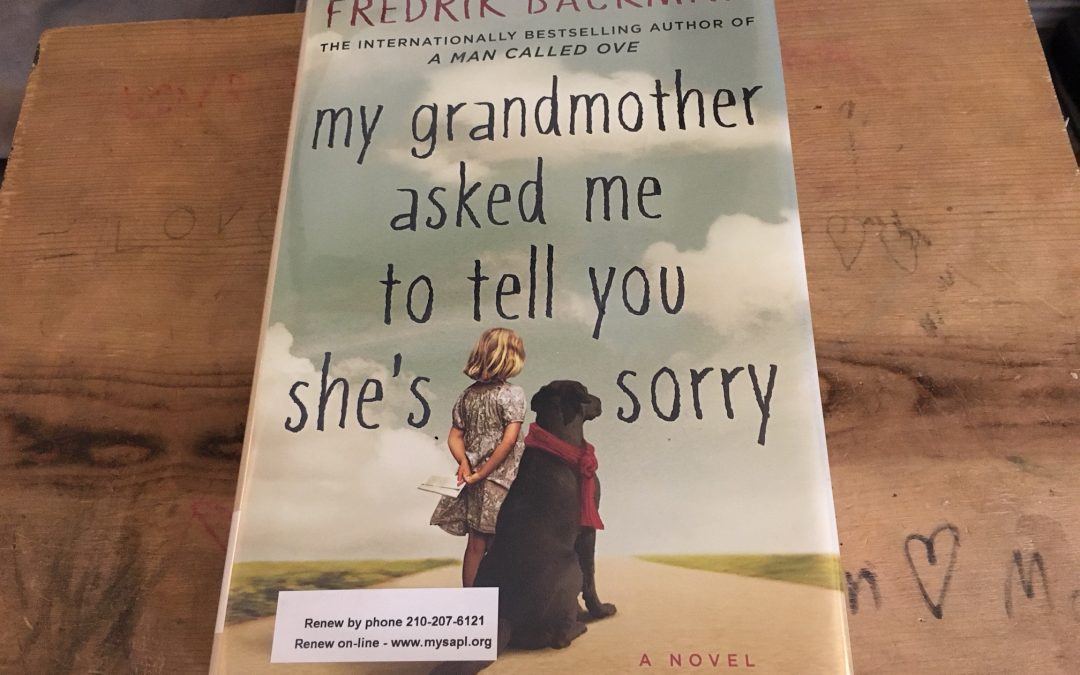Once again, here I am raving about Fredrik Backman. I have become a superfan of his, after reading A Man Called Ove, and, now, My Grandmother Asked Me to Tell You She’s Sorry.
This book. How do I even begin? Funny, charming, heartbreaking, hopeful, sweet are just a few of the things I’d say about it. It’s a story about a little girl, a dog, and a spunky grandmother.
Backman has a gift for telling the kind of stories that will remain in your heart and mind long after you’ve finished it. This one is yet another that fills my thinking space of late.
Here are three things I enjoyed most about it:
The personalities. Backman has a way with characters. It’s like he studies human nature at length, and then he brings those characters to life on the page. They are so wonderfully tragic and funny—which describes the book as well.
The story. This story was, at its heart, about the redemption of an old woman who had worked so much that she was not considered a good mother to her daughter—but there was a reason, of course, for why she did what she did. (You’ll have to read it to find out the reason.)
The imagination. Elsa’s grandmother would tell her stories about the fictional Land-of-Almost-Awake, and these stories corresponded to other characters and things that were happening in the overarching storyline. It was an interesting and engaging technique that I thought added to the overall charm of the book—which, to repeat, was completely off the charts.
Here’s a snippet of the book’s opening:
Every seven-year-old deserves a superhero. That’s just how it is. Anyone who doesn’t agree needs their head examined.
That’s why Elsa’s granny says, at least.
Elsa is seven, going on eight. She knows she isn’t especially good at being seven. She knows she’s different. Her headmaster says she needs to “fall into line” in order to achieve” a better fit with her peers.” Other adults describe her as “very grown-up for her age.” Elsa knows this is just another way of saying “massively annoying for her age,” because they only tend to say this when she corrects them for mispronouncing “deja vu” or not being able to tell the difference between “me” and “I” at the end of a sentence. Smartasses usually can’t, hence the “grown-up for her age” comment, generally said with a strained smile at her parents. As if she has a mental impairment, as if Elsa has shown them up by not being totally thick just because she’s seven. And that’s why she doesn’t have any friends except Granny. Because all the other seven-year-olds in her school are as idiotic as seven-year-olds tend to be, but Elsa is different.
I love this so much I want to go read it again.
And maybe I will.
The above is an affiliate link. I only recommend books that I personally enjoy. I actually don’t even talk about the books I don’t enjoy, because I’d rather forget I ever wasted time reading them. But if you’re ever curious whether I’ve read a book and whether I liked or disliked it, don’t hesitate to ask.


